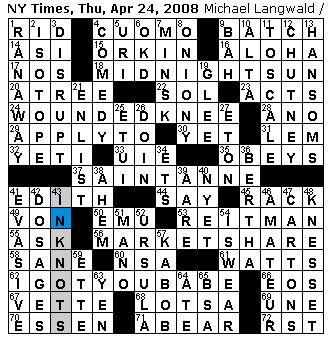Everyone knows each other
"Everyone knows each other", said someone on BBC Radio 4 this morning, speaking about some tight-knit community. And instantly I saw that this was the key to a definitive argument against the logic of the opponents of singular they. I wonder if I can make you see how awesomely beautiful the insight is.
The -s suffix on the present-tense verb knows tells us that the subject is morphosyntactically singular. That is, it counts as singular for purposes of subject-verb agreement. But each other, famously, requires a semantically plural subject. That is why They know each other is grammatical and *He knows each other is not. From this and nothing else it follows that semantic plurality and morphosyntactic singularity are compatible in English. No prescriptivist has suggested that there is something grammatically wrong with Everyone knows each other. But because of that, the logical objection to singular they just collapses. Everyone knows themselves has no grammatically relevant property that isn't already instantiated by Everyone knows each other.
Read the rest of this entry »
Permalink Comments off


